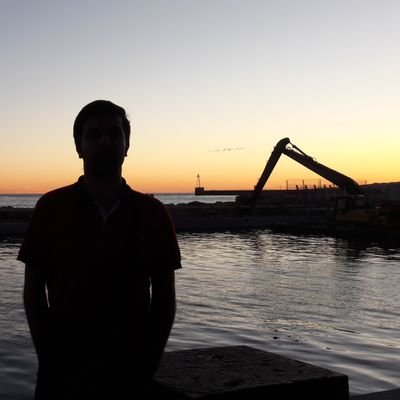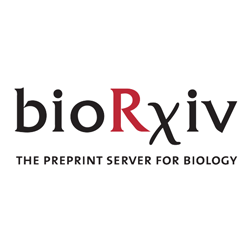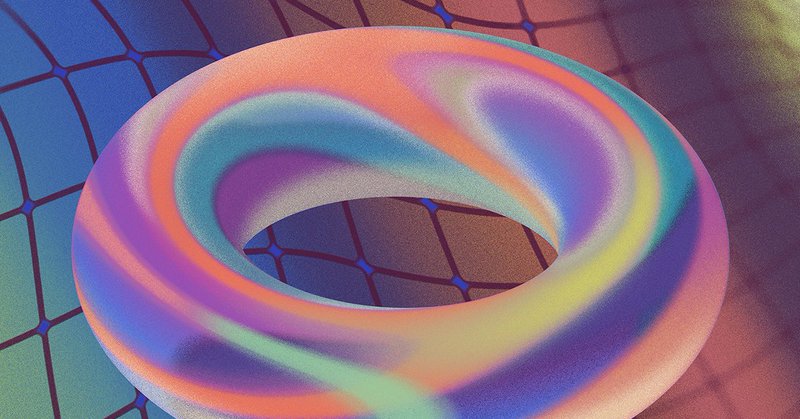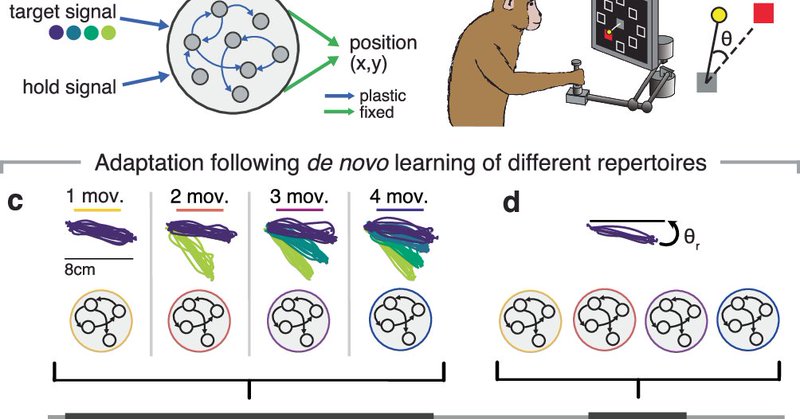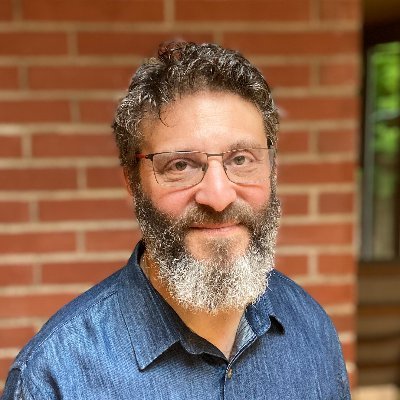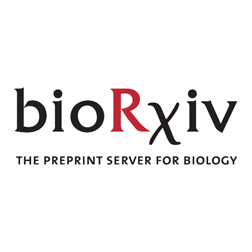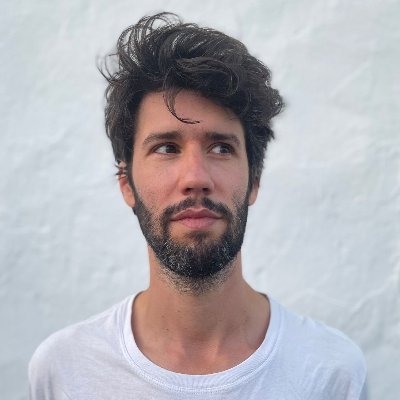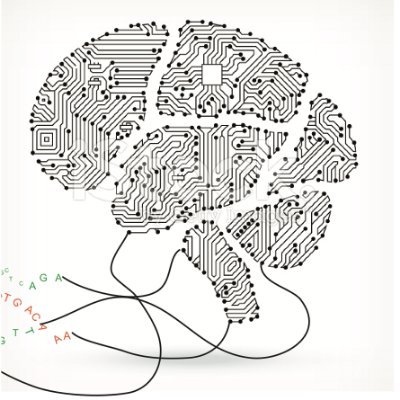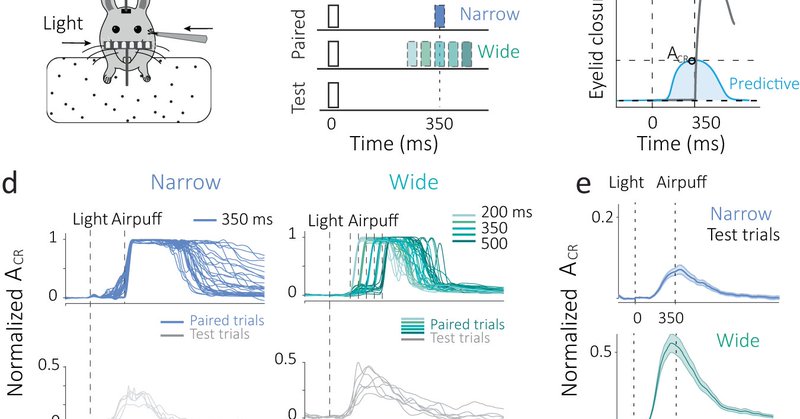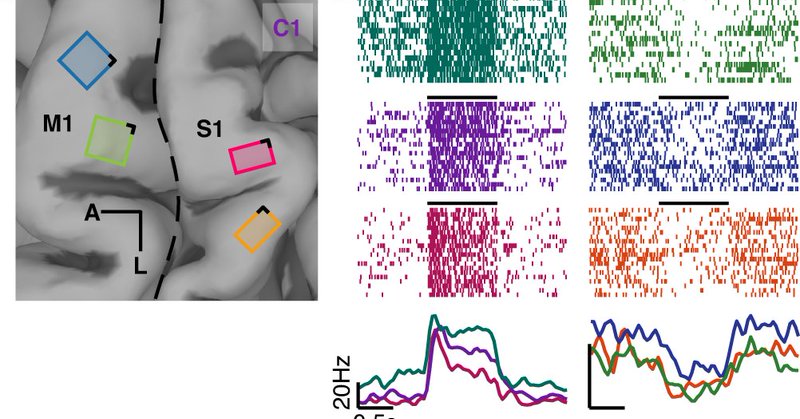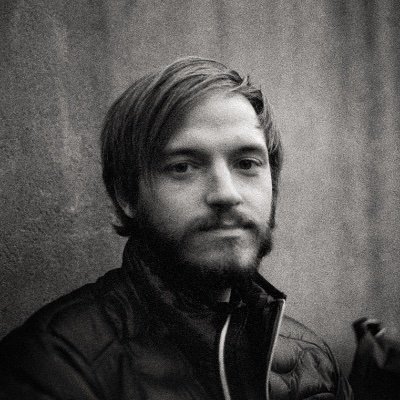
Matt Perich
@mattperich
Followers
1K
Following
1K
Media
13
Statuses
423
Neuroscience, neural engineering, AI. Asst. Professor / PI at @UMontreal and @Mila_Quebec. 🐘: @[email protected] / 🟦: @mattperich.bsky.social
Montréal
Joined April 2011
New paper out this week in @Nature ! https://t.co/zzeNLyhftV Many thanks to the co-authors for making this happen, especially co-senior / best friend @JAlGallego , and co-leads @TweetAtMostafa + @joanna_chang_ ! I also want to say a word about the translational implications 👇
nature.com
Nature - Recordings of neural populations from motor cortex and striatum spanning monkeys and mice demonstrate that neural dynamics in individuals from the same species are preserved when they...
Finally out!!! 🎆🥳 Thrilled to share our paper now @Nature Amazing collab w/ co-first author @joanna_chang_ & @juncholp @PresNCM @jtdudman @mattperich @JAlGallego at @imperialcollege @ImperialBioeng See this #tweetprint for updated summary https://t.co/H7GhYHXdgb 1/n
6
23
117
MAIN 2024 / Please share! 👉 Registration + Abstract submission for Montreal #AI & #Neuroscience are open ! Join us for an in-person meeting in Montreal October 22-25th ! Register now (limited space): 👉 https://t.co/aP1Jc1kKd7 🐼 Abstract submission: 15 Oct! (Audio on)
0
5
13
Check out our new paper led by @OlivierCodol ! We use RNNs to explore possible learning rules that lead to the dynamics we see in brains during behavior. https://t.co/tzk6y9XA6Q
biorxiv.org
During development, neural circuits are shaped continuously as we learn to control our bodies. The ultimate goal of this process is to produce neural dynamics that enable the rich repertoire of...
Here’s our latest work at @g_lajoie_ and @mattperich's labs! Excited to see this out. We used a combination of neural recordings & modelling to show that RL yields neural dynamics closer to biology, with useful continual learning properties. https://t.co/nvRhITFTmJ
0
8
35
@mattperich clarifies some misconceptions about neural manifolds and argues that they present a conceptually appropriate level at which systems neuroscientists can study the brain. https://t.co/9qoJIrmGDO
thetransmitter.org
When you cut away the misconceptions, neural manifolds present a conceptually appropriate level at which systems neuroscientists can study the brain.
0
17
49
If motor cortex is a dynamical system, how does it control independent parameters of movement? Our new paper at #jneurosci reveals arm direction and speed are respectively encoded by the trajectory of neural dynamics and how quickly it unfolds. https://t.co/eGSqPVxttP
jneurosci.org
The fluid movement of an arm requires multiple spatiotemporal parameters to be set independently. Recent studies have argued that arm movements are generated by the collective dynamics of neurons in...
2
31
137
Happy to share the first paper of my master's! Big kudos to my very cool co-authors: @zek3r, @tomjiralerspong, Alex Payeur, @mattperich, Luca Mazzucato, and @g_lajoie_
1
6
15
Beyond excited to share our latest results on real-world and imagined navigation in humans! Thanks for the fantastic support of @suthanalab & co., all collaborators and participants.
New lab preprint! "Human Neural Dynamics of Real-World & Imagined Navigation” Theta oscillations in the human medial temporal lobe occur in short, critically timed bouts during walking. What about during imagined walking? Find out here: https://t.co/V8v1d3egYd 🧵
0
3
18
📜Out now @NatureComms !😊 We show that what you learn & how you learn it can lead to important differences in neural activity structure + these differences play an important role in later adaptation https://t.co/j5gLu3TOKg w/ @mattperich @LeeEugene57 @JAlGallego @ClopathLab 🧵
nature.com
Nature Communications - Using recurrent neural networks, here the authors show that learning the same task through different experiences can lead to important differences in how neural activity is...
3
44
162
Do you want to help create the future of Brain Interfaces? We’re looking for ambitious engineers, scientists, and operations experts to join our early team at Integral as we build transformative neurotechnology for treating and understanding brain disorders. 🧵
9
42
155
2022 @BrainCanada @azrielifdn Future Leader, Dr. @mattperich (@UMontreal), combines brain recordings from diverse animals with AI to uncover shared patterns in brain function across species, advancing our understanding of #brainhealth and disease. #FutureLeaderFriday
0
2
8
Although movement and imagery share population-wide brain responses in motor cortex, a subset of those exists in orthogonal and unique subspaces. @RNELabs @brian_dekleva @jenpgh @raeedcho @YuLikeNeuro @PittResearch
https://t.co/bLQeGOh85z
0
13
33
Happy to share our new work studying the dynamics of interacting multi-region recurrent neural networks! Dynamical mean-field theory, low-rank communication subspaces, inter-region currents... check the preprint below to find out more:
New preprint with @mBeiran on a theory of multiregion recurrent neural networks! We study networks where regions have a mix of random and structured connectivity, with low-rank “communication subspaces” between regions enabling selective activity routing. https://t.co/AbyrLJwedm
1
6
46
A brief return to twitter to share our new preprint. If you want to uncover interpretable low-dimensional factors in your neural population activity in an unsupervised way - check it out! https://t.co/7VCm0DkkSw 1/4
biorxiv.org
In many neural populations, the computationally relevant signals are posited to be a set of ‘latent factors’ – signals shared across many individual neurons. Understanding the relationship between...
4
24
96
Nice @NorthwesternU press release on the work that Lee and his collaborators (including us!) have been doing to extend Brain-Computer Interface use Glad to see it opens up with our recent paper led by @TweetAtMostafa & @joanna_chang_ along w @mattperich @jtdudman & @juncholp
Kathy is too busy getting the amazing #NCMCro program ready and hasn't yet claimed this profile. I'll take advantage of the chance to promo this nice NU press release on our collaborative research ( https://t.co/E5I3g6lw43) and remind you to look for me @LeeEugene57...
0
9
44
NeuroAI Meeting at CSHL! Sept 28-Oct 4, 2024. Save the date! And retweet @doristsao @tyrell_turing @evadyer @s_y_chung @TrackingActions @realAKoulakov @alonamarie @computingnature @AToliasLab @dyamins
https://t.co/rbjOqUpL0c
0
51
147
New from the lab: Cerebellar cortical activity underlying temporal stimuli is heterogeneous, multiplexed and complex not unlike profiles found in the frontal cerebral cortex. Great work by @JovisFilius, Jon Bregman and Marit Runge! Thanks to Chris too! https://t.co/LZIvfKJZU6
nature.com
Nature Communications - The frontal cortex shows intricate feedback and feedforward connectivity, but other brain areas such as the cerebellum are thought to exhibit simpler activity profiles....
1
17
88
Really excited to attend SfN for the first time! #SfN23 I will share our work on nonlinear manifolds, and how we are planning to expand to high-dimensional behaviour and sensory areas. Save some energy for Wednesday afternoon! 😊
2
9
74
Our paper on S1-M1 connectivity in closed-loop intracortical BCI is out today. You can see the summary from last year below. This was a big effort from the @Corbionics team including 3 dedicated study participants and a many researchers. https://t.co/hUfwQ2T76L
nature.com
Nature Communications - Here the authors record the responses evoked in the hand and arm representations of M1 during intracortical microstimulation in the hand representation of S1, and show...
3
7
31
🚨New📜 Q: How do different individuals with unique brains perform the same action? Read🧵to find out! These findings: 1. pave the way for comparative studies across animals & 2. further show we can build brain-computer interfaces that work across users https://t.co/dYLqk2yONW
nature.com
Nature - Recordings of neural populations from motor cortex and striatum spanning monkeys and mice demonstrate that neural dynamics in individuals from the same species are preserved when they...
Finally out!!! 🎆🥳 Thrilled to share our paper now @Nature Amazing collab w/ co-first author @joanna_chang_ & @juncholp @PresNCM @jtdudman @mattperich @JAlGallego at @imperialcollege @ImperialBioeng See this #tweetprint for updated summary https://t.co/H7GhYHXdgb 1/n
9
31
181
Also, this gives a basis for why large-scale decoders can learn shared embeddings across individuals (see our paper on POYO: https://t.co/7JFM3udBEm). And expect more of this to come from us (i.e., @evadyer, @g_lajoie_, @tyrell_turing, @patrickmineault, and team) soon!
1
0
9

